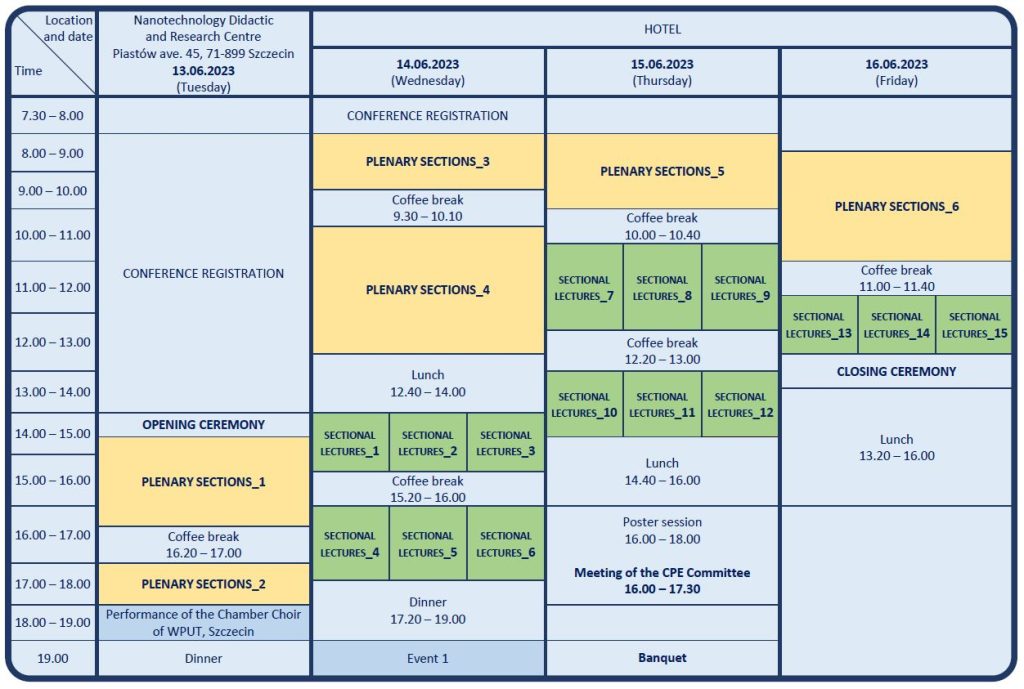Conference program
Click the button below and download the preliminary conference program.
The detailed program of the conference will be announced later.
Instructions
We kindly ask you to follow the instructions below to ensure your presentation goes smoothly:
Oral presentations
- Presenters will have 15 minutes for presentation and 5 minutes for discussion.
- Please prepare your presentation in PowerPoint, although there is no specific presentation template.
- The PowerPoint slides for your oral presentation should be in 16:9 aspect ratio.
Poster presentations
- The maximum poster size is A0.
- All the posters will be available online on our website, therefore authors are kindly requested to submit their posters in pdf format via our email (okichip24@zut.edu.pl) by June 7, 2023.
Thematic sections
The conference includes the following sections:
Plenary sections
Section_P1 – Modern trends in chemical and process engineering
Section_P2 – Circular economy and climate protection
Section_P3 – Chemical engineering and new energy sources
Section_P4 – Industrial process engineering
Poster section
The organizers assume that posters will also be available online for conference participants
Sectional lectures
Section S1 – Intensification of transport processes
Section S2 – Environmental chemical engineering
Section S3 – Engineering of chemical reactions
Section S4 – Modern trends in chemical engineering and technology
Section S5 – Forum for young researchers
Section S6 – Bioprocess and medical engineering
Section S7 – Green and sustainable chemical engineering
Plenary Speakers
Information about plenary lectures will be updated on a regular basis.
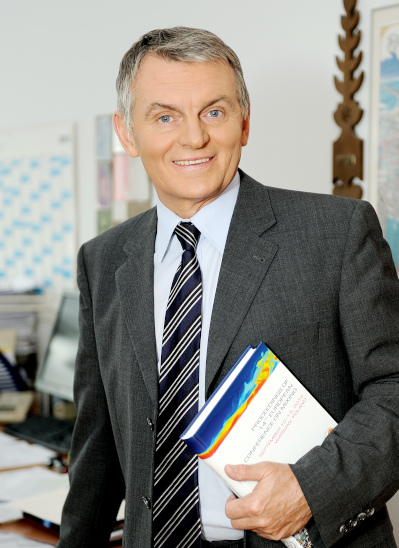
Prof. Eugeniusz Molga
Eugeniusz Molga is a full professor at the Faculty of Chemical and Process Engineering of the Warsaw University of Technology in Warsaw, Poland. He serves also as president of the Committee of Chemical and Process Engineering of the Polish Academy of Sciences.
His research activities are focused on chemical reaction engineering, reactor modelling, process integration, waste pyrolysis, sustainable production of hydrogen and syngas, application of neural networks in chemical engineering and process safety.
He has published more than 90 papers in peer revied international journals. He participated – mostly as a leading person – in realization of numerous scientific grants and projects. He is also an academic teacher at the Warsaw University of Technology.
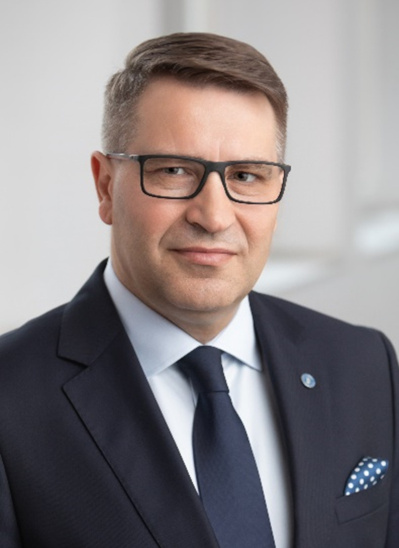
Prof. Teofil Jesionowski
Professor Teofil Jesionowski – Rector of Poznan University of Technology (PUT), the Chair of the Conference of Rectors of Polish Technical Universities, member of the Board of the Conference of Rectors of Academic Schools in Poland. Since 2020 member of Polish Academy of Science. He also serves as the head of the Chemical Technology Department. In period of 2016-2020 vice-rector for LLL & International Education, and from 2008 to 2016, he was deputy-dean of the Faculty of Chemical Technology at PUT.
Teofil Jesionowski received the title of professor of chemical sciences in 2013. His research interests include the synthesis, characterisation and applications of advanced functional materials, functional fillers and polymer composites; activators of rubber compounds, (bio)additives and eco-friendly fillers; biomineralisation – inspired syntheses and Extreme Biomimetics; biocomposites and biomaterials; removal of wastewater pollutants via adsorption, photocatalysis or precipitation methods; pigment composites; enzyme immobilisation; colloid chemistry and surface modification; hybrid systems, biopolymers and biosensors.
He has published over 450 publications indexed by Thomson Reuters JCR. He is also a co-creator of over 45 patents and patent applications. His publications received over 12,900 citations (h index = 53). He is the co-author of chapters in numerous monographs, published in renowned publishing houses (Elsevier, Springer, Wiley, InTech, etc.); and a scholarship holder of the Foundation for Polish Science. He is also a member of editorial boards of scientific journals: Dyes and Pigments – Elsevier, Physicochemical Problems of Mineral Processing. Nowadays serves as Section Editor in Chief Molecules journal (MDPI) as well as Materials (MDPI) and member of editorial board/associate editor of Scientific Reports (Nature Publishing Group).
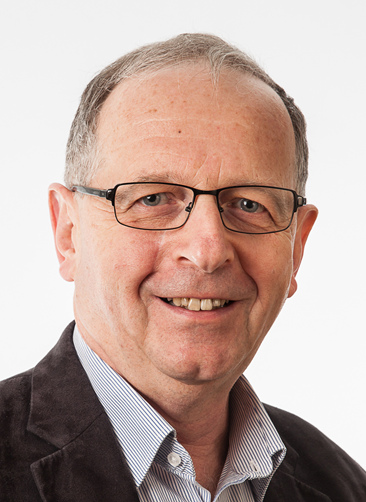
Prof. Andrzej Stankiewicz
Andrzej Stankiewicz is Emeritus Professor at Delft University of Technology, The Netherlands, and former Director of the TU Delft Process Technology Institute. With 45 years of industrial and academic experience he is author of numerous scientific publications on process intensification, chemical reaction engineering and industrial catalysis. Professor Stankiewicz is Editor-in-Chief of Chemical and Process Engineering: New Frontiers (Polish Academy of Sciences), Series Editor of the Green Chemistry Book Series (Royal Society of Chemistry) and former Managing Editor of Chemical Engineering and Processing: Process Intensification (Elsevier). He was also the founder and the first Chairman of the Working Party on Process Intensification at the European Federation of Chemical Engineering. Presently, he chairs the Management Board of the European Process Intensification Centre (EUROPIC).
Research interests of Andrzej Stankiewicz focus on intensification of chemical processes using electricity-based energy transfer mechanisms. The research in this field brought him among other things the prestigious ERC Advanced Investigator Grant. Prof. Stankiewicz is currently affiliated at Warsaw University of Technology where he continues his research on green fuels production and on novel energy storage systems using renewable electricity as primary energy source.
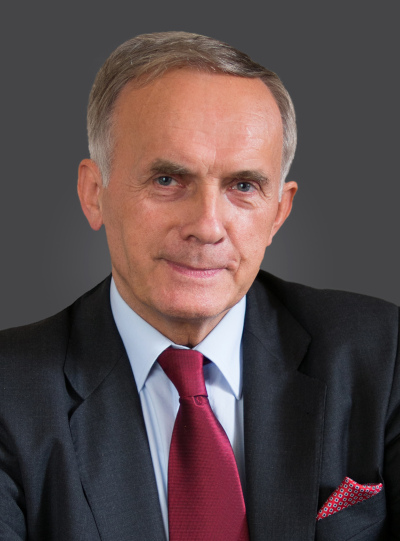
Prof. Stanisław Ledakowicz
Stanislaw Ledakowicz became professor for chemical technology and biotechnology at TU Bergakademie Freiberg in Germany in 1993. In 1994 was conferred the title of a full professor in Poland. Since 1994 he has been university professor at Lodz University of Technology (TUL), being the head of Department of Bioprocess Engineering since 1995. He is a member of Editorial Boards of 4 scientific journals.
The fields of his scientific interest are: chemical, biochemical and environmental engineering, and industrial biotechnology. He published over 700 publications, including 295 original papers in JCR journals, contributed to 30 monographs and holds 16 patents, participated in 4 industrial implementations. H-index is 40 and number of citations over 6500 according to Scopus. Being academic teacher he supervised 25 doctors, 4 of them are university professors.
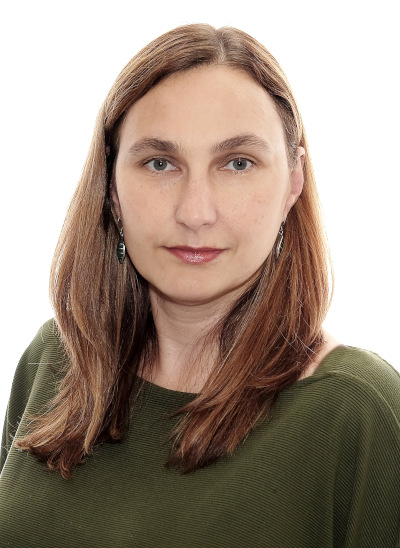
Prof. Anna Zielińska-Jurek
Anna Zielińska-Jurek research work on photocatalysis started in 2006 at Gdansk University of Technology, including 3-month research stay at Hokkaido University, Training School “Environmental Applications of TiO2 Photocatalysis” at University of Oulu in Finland granted by COST Program and Training School “NanoBiophotonics” at the Beckmann Institute, Urbana-Champaign in USA granted by University of Illinois.
In 2011 she was appointed as an assistant professor in Department of Chemical Technology, Gdansk University of Technology, where she completed her habilitation in 2018 and became an associate professor in Department of Process Engineering and Chemical Technology at Gdansk University of Technology.
Research interests of Anna Zielińska-Jurek focus on the design, synthesis and application of functional materials with self-cleaning, magnetic and biocidal properties, photocatalysts with defined morphology and their environmental applications as part of the projects of the National Science Centre, National Center for Research and Development and European Union Development Fund (BSR Interreg Programm). She is an author and co-author of 22 patents and patent applications, 3 inventions awarded with a gold medal at the invention shows in Brussels, Paris and Warsaw. She is also a member of the editorial board of Frontiers in Chemistry, section Photocatalysis and Photochemistry, Catalysis Research Journal, a member of the EcoTech Center of priority research areas at Gdańsk University of Technology. Laureate of many awards for product and process innovations, award granted by the Ministry of Science and Higher Education for outstanding young researchers who conduct high-quality research and have impressive scientific achievements on an international scale.
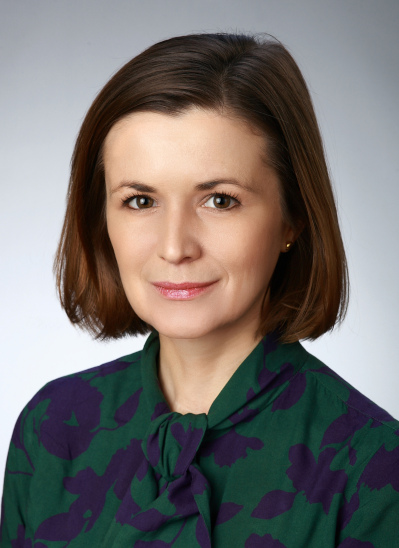
Prof. Katarzyna Bizon
Katarzyna Bizon is Associate professor at Faculty of Chemical Engineering and Technology, Cracow University of Technology (CUT). Since 2021 she is Head of the Department of Chemical Engineering and Processing of CUT.
She obtained her PhD degree (2010) in Chemical Engineering from the Faculty of Chemistry at Silesian University of Technology, and DSc (habilitation) degree (2018) from the Faculty of Process and Environmental Engineering at Lodz University of Technology.
In the period 2005-2015 she was a researcher at the Department of Engineering, Università degli Studi del Sannio in Benevento, and at Istituto di Ricerche sulla Combustione, Consiglio Nazionale delle Ricerche (now Istituto di Science e Tecnologie per l’Energia e la Mobilità Sostenibili CNR) in Naples, Italy. Particularly, from 2006 to 2008 she was a Marie Curie Fellow at IRC CNR, and in 2007, as a part of her fellowship, she completed 4-month research stay at the Process and Energy Department, Faculty of Mechanical, Maritime and Materials Engineering (3mE), Delft University of Technology, The Netherlands. From 2006 she also actively interacted with Istituto Motori, CNR in Naples. In the aftermath of this collaboration, in 2012 she was awarded by The Combustion Institute with the Bernard Lewis Fellowship. Currently, Katarzyna Bizon is a member of the Board of Directors of the Institute for Dynamics of Explosions and Reactive Systems (IDERS) and of the Committee of Chemical and Process Engineering of the Polish Academy of Science.
Katarzyna Bizon’s expertise and research activities span issues related to mathematical modelling and simulation of a variety of chemically reacting systems, with a particular emphasis on data-driven model reduction techniques, and massive data analysis. Her current research activities mainly focus on the issues of modelling and optimization of sorption-enhanced reactive processes, physical and chemical processes carried out in hybrid fixed beds, and phenomena evolving in porous media.

Prof. Ewa Mijowska
Professor Ewa Mijowska is a full professor at the Faculty of Chemical Technology and Engineering of West Pomeranian University of Technology in Szczecin (ZUT), Poland. She is a Head of Department of Nanomaterials Physicochemistry and a member of University Council in ZUT.
Her research interest is focused on different nanomaterials and its composites (3D (carbon nanospheres, MOF based), 2D (TMDs, graphene, borophene), 1D (carbon nanotubes)) design and fabrication for different applications such as energy storage devices (supercapacitors and batteries) or hydrogen/oxygen evolution reactions by means of electrochemistry and photocatalysis.
She has released ~more than 360 papers in peer revied international journals with Hirsch index of 53 and 9700 citations. She is also an academic teacher at West Pomeranian University of Technology in Szczecin in physics, nanotechnology, synthesis, characterization and applications of nanomaterials.
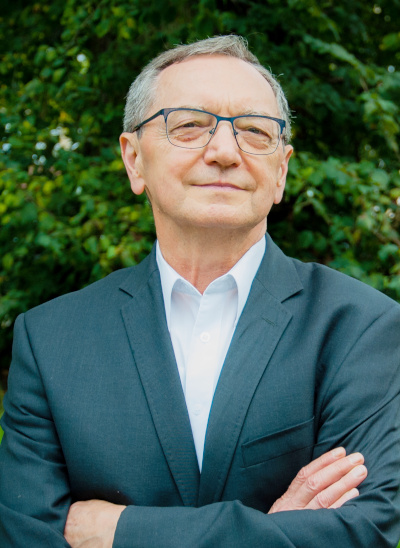
Prof. Antoni Morawski
After getting D. hab. Sc. degree (1990) at Szczecin University of Technology in ammonia synthesis field, he was promoted (1992) to an associate professor in Institute of Inorganic Chemical Technology and Environment Engineering, Szczecin University of Technology (present name of West Pomeranian University of Technology – WPUT).
In 1995 he got a full professor title and position. Through 6 years (1999-2005) Prof. Morawski was the Head of Ph.D. course in Faculty of Chemical Engineering. In period 1992-2019 he was the Head of Dept. of Water Technology and Environmental Engineering in Faculty of Chemical Technology and Engineering (WPUT). Since 2005 up to 2019 Prof. Morawski was director of Institute of Inorganic Chemical Technology and Environment Engineering of WPUT. Prof. Morawski was the council member of The National Centre for Research and Development (2010-2016). From 2017 to March 2018 he was President of the Board, Wroclaw Research Center EIT+ Ltd, Poland.
His research activity mainly concerns the field of chemical technology, environmental engineering, catalysis and photocatalysis.He has authored or co-authored about 460 journal papers as well as more than 670 conference publications and has over 10596 citations by SCI with Hirsch index of h=55 for 347 publication registered by SCOPUS . Professor Morawski is author and co-author more than 240 Polish patent applications(+ 3 PCT) as well as great number of works performed under cooperation with industry.
Prof. Morawski is/was member of Carbon Society of Japan, European Photocatalysis Federation, member of editorial board of Journal of Materials (2012-2019), Polish J. Chemical Technology (co-former), International J. of Photoenergy (2014-2019), Catalysts (2020-), Photocatalysis: Research and Potential (2022-).
The scholarship from Japan Society for Promotion of Science (JSPS) (1997) he realized in Hokkaido University. In February 2015 he got Tokyo University of Science President Award, February 2015. In 2020, 2021 – included in the group of 2% of the most influential scientists in the world according to “PLOS Biology”. In 2022 Edition Ranking of Top 1000 Scientists in the area of Chemistry (Research.com) got – no 9 in Poland, no 4220 in the world.
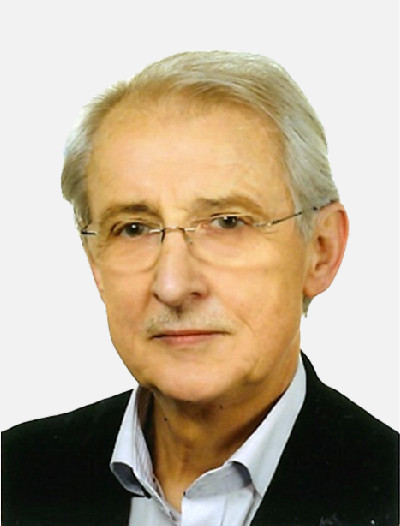
Prof. Jerzy Maćkowiak
Jerzy Maćkowiak studied at Wrocław University of Technology (Poland) where he gained his doctorate (Dr.-Ing., 1975) in Chemical Engineering under Prof. Ziołkowski and he worked till 1976 as Scientific Assistance under Prof. Ziołkowski at Wrocław University of Technology. He subsequently studied Mathematics at Wrocław University till 1976. From 1976 to 1989, he worked under Professor R. Billet at the Institute for Thermal Separation Processes of Ruhr-Universität-Bochum, Germany, where his final post was as Academic Director.
During this time, he was leading the development of new type of random packings and carried out studies on the fluid dynamics and mass transfer of new and existing packing types. He created one of the largest database containing fluid dynamics and mass transfer data for the design of packed and tray columns. Since 1989, he is Managing Director of Envicon Engineering GmbH, now ENVIMAC Engineering GmbH, in Oberhausen, Germany and ENVIMAC Polska Sp. z o.o., Poland.
He completed his habilitation at Wrocław University of Technology in 1991 under Prof. R. Koch and Prof. A.Mersmann (Munich). Since 2004 till today he is working as a lecturer at Technische Universität Dortmund. Since 2010 he is holding a Professor degree from the Institute of Fluid Separation Processes of the Technische Universität Dortmund run by Prof. Górak.
His research has been focussing around the fields of rectification, absorption and liquid-liquid extraction as well as thermodynamic properties of systems, direct heat transfer with a focus on packed columns and droplet separators, biological waste air and wastewater treatment. He has presented papers at meetings of various engineering institutions, including GVC-VDI, EFCE and AIChE, at Achema, Kammer der Technik and CHISA and Polish Conference as well at different companies such BASF, GEA, Bayer and technical universities in Germany. In addition, he has held seminars on packed and tray columns in Germany, Poland and South Korea. He is the author/co-author of 3 books and more than 140 publications and holds 15 patents and extensive contribution about “Random packings” in the book “Distillation- Equipment and Processes”- Edited by A. Gorak and Z. Olujic 2015–Elsevier.
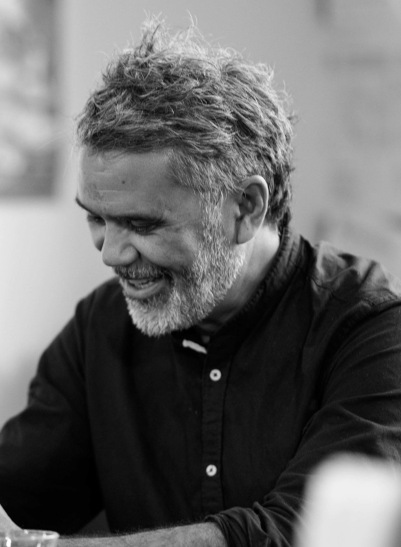
Prof. Derek Kawiti
Derek is a Professor of Architecture specialising in Māori Designed Environments and the application of contemporary manufacturing technologies and automation in architecture. An expert and teacher in advanced digital tools (generative software) and robotics, he heads SITUA (Site of Indigenous Technologies Understanding Alliance), Indigenous Material Domains (IMD) and Corporate Spheres – Indigenous Workspaces. The labs play a significant role in the ‘re-indigenising’ of architectural knowledge through a renewed exploration of customary methods of spatial organisation (tikanga/kawa), engineered structures and patterns, Māori geometries and materials utilising computation and digital fabrication. Derek is a Principal Investigator and is a member of the Science Executive for the MacDiarmid Institute. He is also a researcher with the Robinson Space Program.
As an architectural practitioner Derek is a director of interdisciplinary architectural design firm, CILOARC, and is an associate director at Peddle Thorp Architects in Auckland where he is cultural and digital lead on a range of civic and government projects. He has more than 25 years’ experience in both commercial and domestic scale architecture having worked in both New Zealand and international practice environments including London, the Caribbean and Italy. He has extensive experience as a cultural strategist and design advisor to major companies in the building industry and works with various architectural practices both locally and internationally on project bid strategy.
His academic research, teaching and practice orientation all draw influences from his cultural heritage where a central concern is with understanding the implications of the growing use of digital design technologies in architecture and its increasing convergence with aspects of Indigenous customary knowledge.
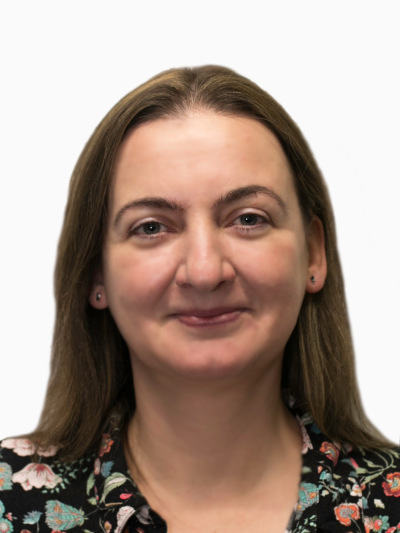
Prof. Ewa Kowalska
Ewa Kowalska is a Professor at Jagiellonian University. She received PhD degree in chemical technology (Gdansk University of Technology, Poland) in 2004. After completing JSPS (2005-2007), GCOE (2007-2009) postdoctoral fellowships in Japan, and Marie Sklodowska-Curie fellowship in France (2002-2003) and Germany (2009-2012), she joined Institute for Catalysis, Hokkaido University ICAT as an associate professor in 2012. In 2022 she was appointed as a professor at Faculty of Chemistry, Jagiellonian University.
Her research interests focus on environmental protection, AOPs, noble metals, solar energy conversion, plasmonic photocatalysis, nanoscience, “green” chemistry and vis-responsive materials for degradation of chemical and microbiological pollutants. She has published over 110 papers in peer-reviewed journals and has led many research grants (e.g., CONCERT Japan, and founded by Bill & Melinda Gates Foundation, European Commission, NCN, NAWA; https://ewakowalskasapporo.wixsite.com/ewa-kowalska).
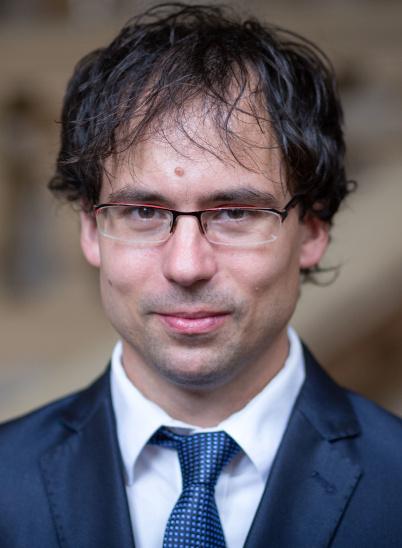
Dr. Matej Baláž
Matej Baláž is an early-career researcher working at the Institute of Geotechnics, Slovak Academy of Sciences (Košice, Slovakia). He is well-established in the field of mechanochemistry for the production of nanocrystalline materials and eggshell waste valorization. He has published more than 115 peer-reviewed scientific publications in CC/IF journals (27 as a first author) and 1 sole-author monograph published in Springer-Nature. His works have been cited more than 2000 times in WOS and Scopus, and his h-index is 23 (WOS). He belongs among outstanding young researchers in Slovakia as corroborated by more awards he obtained (e.g. he is the winner of a competition “Scientist of the year 2018” in the category “Young researcher” in Slovakia). The recognition of his work at the international level is documented e.g. by having four invited lectures on international conferences in USA, Italy, France and Hungary. He is currently serving as a Short-Term Scientific Missions coordinator in the COST project CA18112: Mechanochemistry for Sustainable industry and is also taking part in an ERA-MIN3 project. He is an Editorial Board member of a journal Molecules.
Research interest of Dr. Matej Baláž is multidisciplinary development of mechanochemistry into chemistry and materials science. This unique branch of science applies tools of high-energy ball milling to prepare the desired materials in the absence of solvents and external heating or pressure. Specifically, the research group of Dr. Baláž is focusing on the preparation of metal chalcogenides using sustainable resources and quick reaction pathways, the production of metallic nanoparticles by a solid-state processing and investigating the application of the prepared products in photocatalysis, biomedicine and as energy materials.
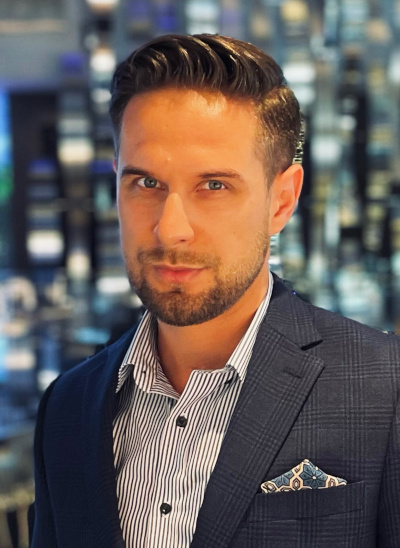
Dr. Kamil Czelej
Kamil Czelej received his Ph.D. in Materials Science and Engineering at Warsaw University of Technology in 2018. Shortly after graduation, he was employed at the Faculty of Physics, University of Warsaw, where he executed and managed the National Science Center – Sonatina III project in the field of solid-state physics and defects in wide band gap semiconductors. As a part of that project, he has been a visiting researcher at the University of California, Santa Barbara for 6 months. Since November 2022, he is employed at the Faculty of Chemical and Process Engineering, Warsaw University of Technology as a PI and Manager of the National Center for Research and Development – Lider XIII project titled: Novel technology of highly efficient synthesis gas production via dry photoreforming of methane in a flow system.
His research expertise includes surface chemistry, catalysis, sustainable hydrogen production and nanomaterials design. In particular, he is interested in light-matter interactions, plasmonic enhanced chemistry and photocatalysis. He is author of 20 per-reviewed papers in scientific international journals, 18 presentations at international conferences, 3 patent/patent applications and 5 trademarks. He was awarded the scholarship from the Polish Ministry of Education in 2020 and the START 2018 stipend from the Foundation for Polish Science.

Dr. Emilia Nowak
Emilia Nowak graduated from ZUT, Szczecin in 2008 in Chemical and Process Engineering (the best student in graduating class) as well as completed 2.5 years in Automatic Control and Robotics (ZUT, Electrical Engineering). She received PhD (2013) in Chemical Engineering from the University of Birmingham (UK), where she was researching gas-liquid-solid interactions with industrial partner Johnson & Matthey, UK.
In the postdoctoral projects, Dr Nowak has been involved in the NANOHEX collaborative EU project (EU FP7 fund) where she was investigating heat transfer in nano-fluids with EU academic and industrial partners aiming at developing more efficient coolants. Subsequently, she was a member of MEMPHIS project (EPSRC fund), where she studied small-scale multiphase flows with UCL partners to feed information for the next generation of modelling tools that can handle fast & small-scale phenomena in multiphase systems developed by the team at Imperial College London (ICL).
Dr Nowak has been appointed to an academic position at Massey University in New Zealand in 2016 to teach principles of transport phenomena in food processing. She secured funds to carry out fundamental research (Royal Society NZ and Callaghan Innovation) as well as run applied projects with ~ 20 industry partners.
Since industrial-scale process design needs to resolve several fundamental open problems in multiphase systems, Dr Nowak aims at capturing dynamics at the small time – and length-scale phenomena (coalescence, breakage, wetting) at the interfaces. A fundamental understanding of the dynamics of interfacial phenomena with relevant physics and chemistry enables predictive modelling of the multiphase processes that are determined by small-scale phenomena. These are crucially important in FMCG, fine chemicals, catalysis, oil, and food sectors that rely on “cook & look”, “cookie-cutter” approach and semi-empiricism that may result in unsafe operation, product failure, redundant processing aids use and unaccounted for long-term consequences.
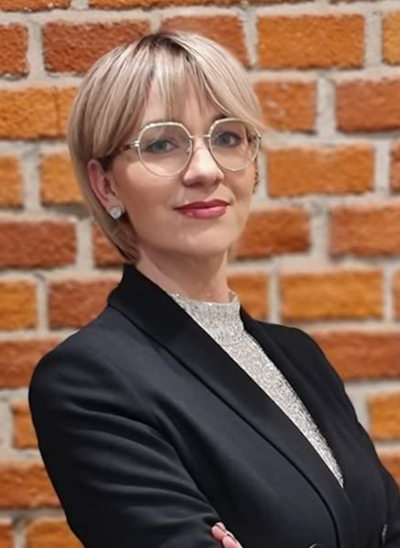
Dr. Aleksandra Ziemińska-Stolarska
Aleksandra Ziemińska-Stolarska works as an assistant professor in the Faculty of Process and Environmental Engineering at Lodz University of Technology. Research activity covers the area of Life Cycle Assessment analysis for new material design and technologies in the field of chemical and environmental engineering. Aleksandra Ziemińska-Stolarska oversees realization of three EU projects:
- HIPERION (2019-2023, Horizon 2020) „Hybrid Photovoltaics For Efficiency Record Using Integrated Optical Technology”
- Fibre4Yards (2021-2013, Horizon 2020) “FIBRE composite manufacturing technologies FOR the automation and modular construction in shipYARDS”
- HECATE (2023-2025, Horizon Europa) “Hybrid-ElectriC regional Aircraft distribution Technologies”
Participated in 2 other projects where she dealt with the calculation of the carbon footprint. - INREP (2015-2018, Horizon 2020) “Towards Indium Free TCOs”
- INVITES (2016-2019, NCBiR) “Innovative Equipment for Intensified Recovery of CO2 from Flue Gases”.
Aleksandra Ziemińska-Stolarska is an author of the report on the Carbon Footprint of the Lodz University of Technology. Her scientific achievements are confirmed by 17 publications in scientific journals and over 20 speeches at Polish and foreign conferences.

